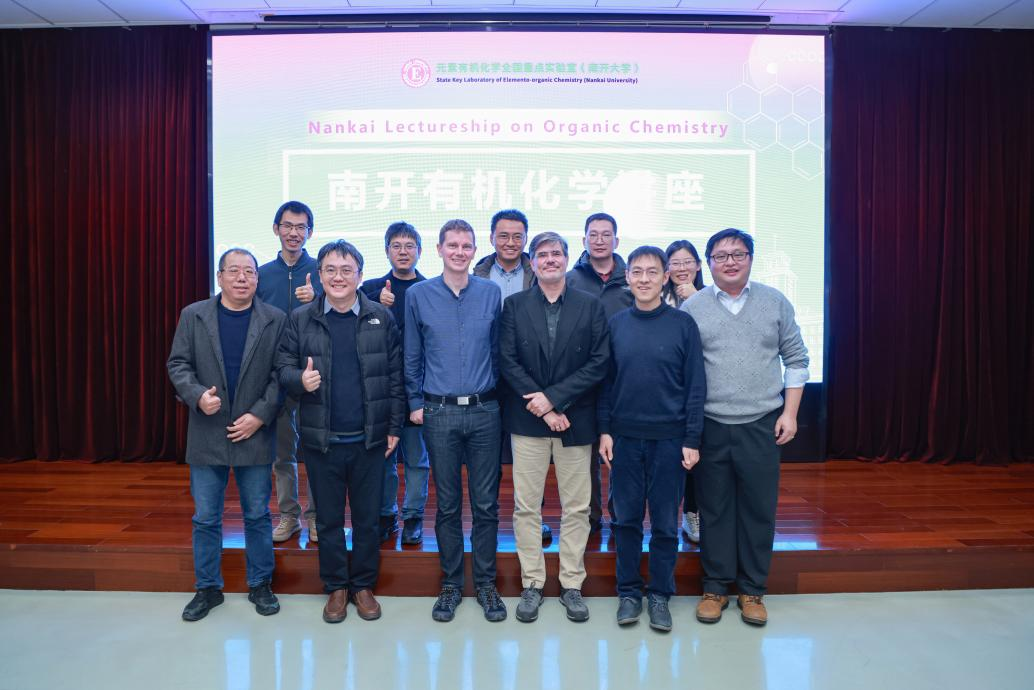On October 23rd, Prof. Frank Neese (Member of the German National Academy of Sciences Leopoldina and Director at the Max Planck Institute) and Prof.Tobias Ritter were invited by the State Key Laboratory of Elemento-Organic Chemistry to deliver lectures as part of the Nankai Lectureship on Organic Chemistry. After engaging in academic exchanges with teachers and students from the laboratory, they presented two outstanding academic reports titled "How to Combine High-Level Spectroscopy with Quantum Chemistry to Study Reaction Mechanisms" and "Late-Stage Functionalizations," respectively, at the Shi Xian Academic Lecture Hall. The event was chaired by Prof. Qian Peng from the State Key Laboratory, with nearly 200 faculty members and students from the laboratory and College of Chemistry participating in this scientific exchange activity.
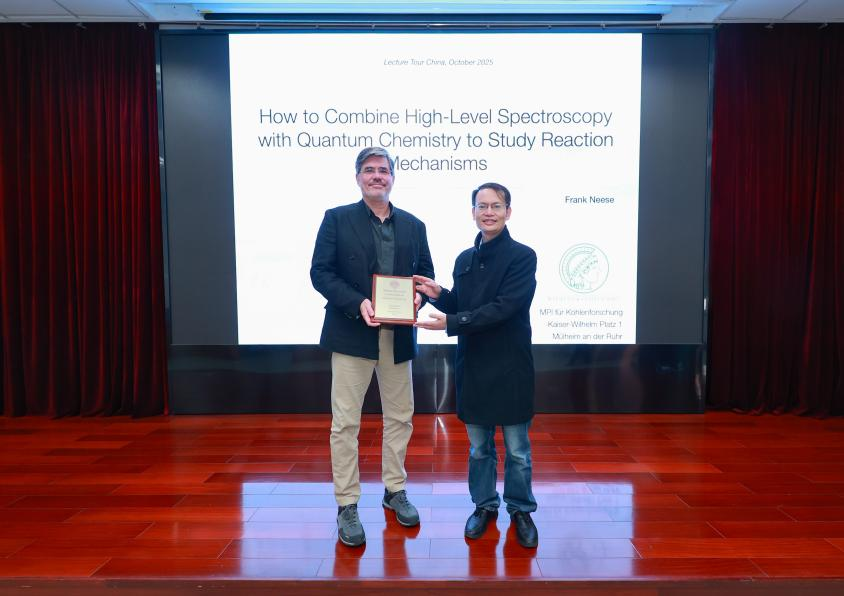
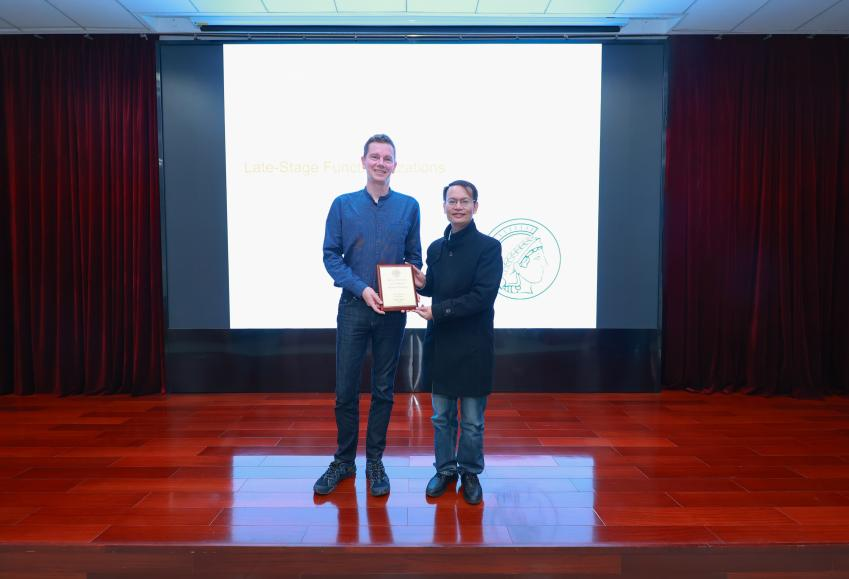
Before each lecture, Prof. Pingping Tang, Deputy Director of the State Key Laboratory of Elemento-Organic Chemistry, presented the speakers with the "Nankai Lectureship on Organic Chemistry" commemorative plaque.
During his lecture, Academician Frank Neese elaborated on developing theoretical simulation tools to reveal novel chemical mechanisms, introducing ORCA—the renowned quantum chemistry software developed by his research group. He highlighted how recent code rewrites have significantly enhanced computational efficiency. Concluding his talk, Prof. Neese emphasized the critical importance of integrating theory and experimentation, illustrating this through case studies, including applications in determining magnetic structures of novel compounds and elucidating new mechanistic insights into iron-catalyzed reactions.
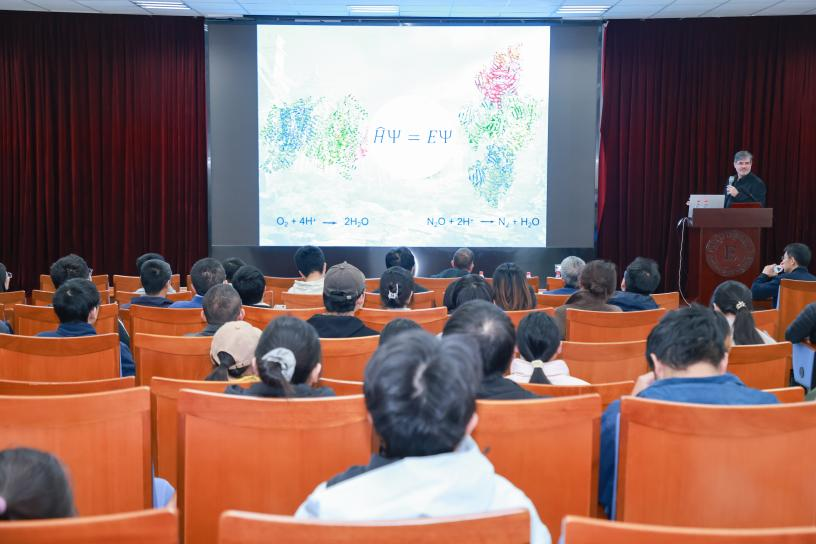
Prof. Tobias Ritter presented his group's recent advances in aromatic C–H functionalization during his lecture. He highlighted the development of two key activation systems based on "tetrafluorothianthrene oxide" and "selenodibenzothiophene oxide," which enable selective activation of aromatic C–H bonds. The resulting intermediates have been widely utilized for diverse late-stage functionalization of aromatic compounds.
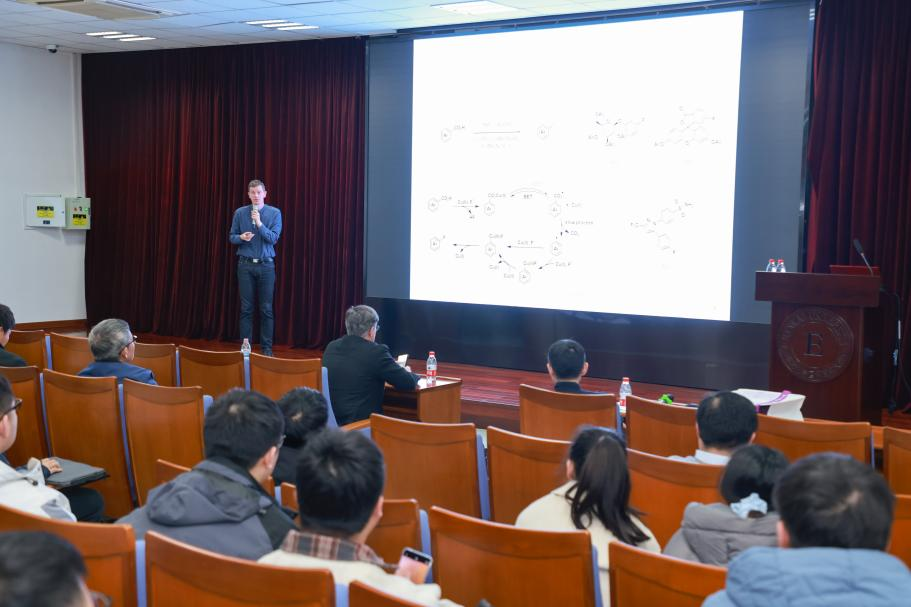
After the lectures, the teachers and students present engaged in lively and in-depth discussions with the two professors, fostering a highly stimulating academic atmosphere.
